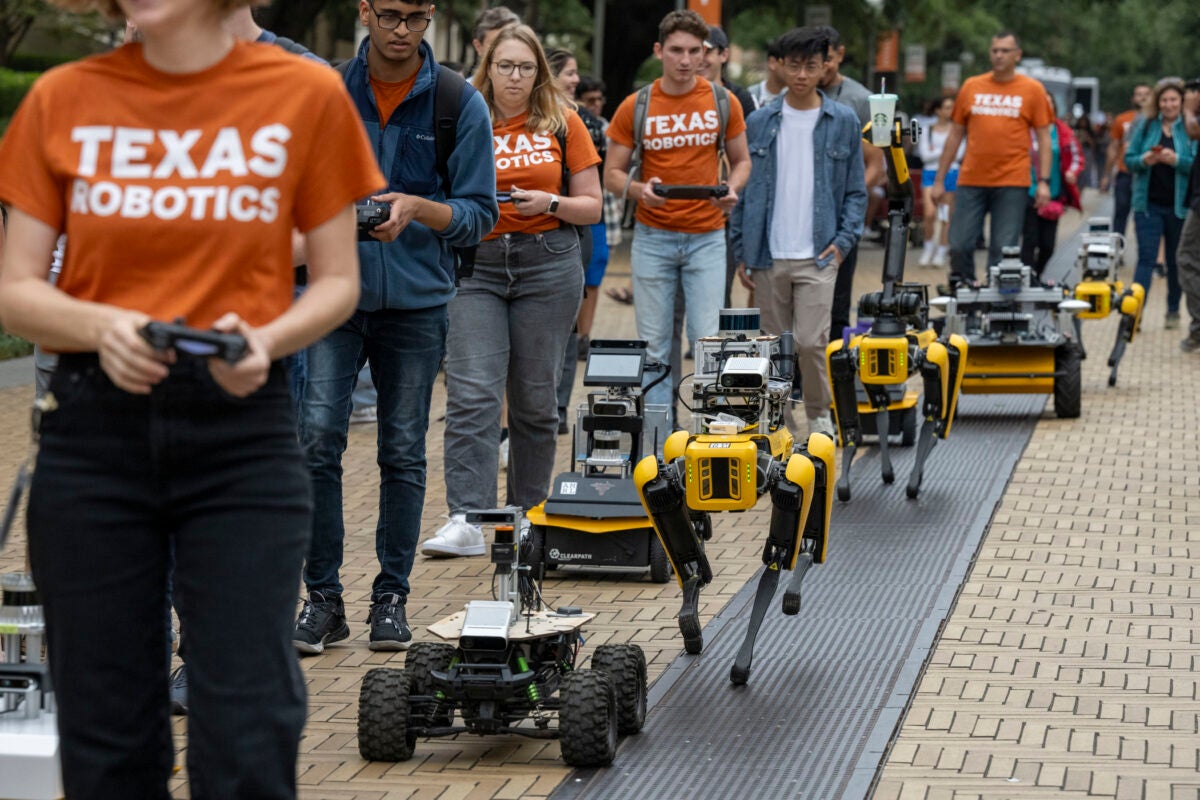Distinguished Alum, Author and Serial Entrepreneur to Address Class of 2025
Amir Husain (B.S. ’98 Computer Science) will address graduates of the College of Natural Sciences at ceremonies for undergraduates.

Credit: Sarah Wilson
Amir Husain — a serial entrepreneur, technologist and author inducted into the College of Natural Sciences’ Hall of Honor — will address the class of 2025 at graduation ceremonies on May 10.
After graduating from The University of Texas at Austin in 1998 with a B.S. in computer science, Husain went on to receive widespread recognition for his work in artificial intelligence. He founded and served as CEO of the award-winning AI company, SparkCognition, and received Austin’s Top Entrepreneur award. He also was the founding CEO of SkyGrid and founder of the defense technology company SGS. The holder of dozens of patents in AI and distributed systems, as well as the author of multiple books, including “The Sentient Machine,” Husain has been featured in national and international media including the BBC, Fortune and Forbes.
Below is an excerpt from an earlier interview with Husain for the college’s alumni magazine, The Texas Scientist.
Does tackling unsolved problems in computing feel like a theme for you?
At SparkCognition, the AI company I founded, we look to expand the state of the art every day. How can computers find and solve problems which humans have a very difficult time with? For example, identifying a catastrophic failure with a $100M turbine before the failure occurs. Or preventing a disaster at an offshore oil rig. This type of thinking extends into personal hobbies, too, one of which is retro computing. With my collection of old computers, my view is always: “What can this do that nobody thought it could do?” It’s sort of a theme that’s applied to my whole life. I keep asking myself, what can I do that I couldn’t do yesterday? The downside of that is you’re never satisfied, and I never am, but the plus side is that you learn a lot.
Why does science interest you?
The reason I’m interested in science is because I think that, while technology has evolved quite a bit, human nature is what it was 250,000 years ago. If you look at history, throughout the world, one of the things you realize is that humans can behave really badly when stressed, but they can behave decently when you create abundance and hope. The only way to create that abundance is through science, technology and building things that solve problems. I deeply enjoy philosophy and poetry, and the contributions of giants of literature are immense. But it’s hard to point to another human being that’s done as much good as, say, somebody that’s invented a vaccine or discovered penicillin and saved hundreds of millions of lives. That kind of contribution to humanity comes through science, so if you’re going to devote your life to one thing, it should be science, technology and invention.
What drove you to stay connected to UT?
In order to do big things, you need quality, but you also need quantity. UT combines those in a way that no other school does. Look at its singular distinctions in computer science: it’s a big department and it’s still really good. And it’s part of a community which is excellent at many things. When you’re looking to apply knowledge and come up with solutions to real-world problems, you need the enabling technology, which is computer science, but you also need the domain expertise from other areas. As an entrepreneur, it’s been a huge edge to be in Austin and to be able to draw on UT’s excellence at scale.



